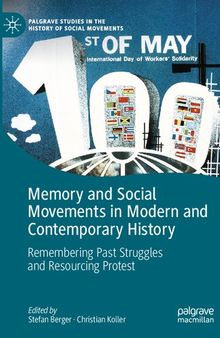 جزییات کتاب
جزییات کتاب
Reflecting the growing interest of historians in memory studies, this edited collection examines the relationship between memory and global social movements from 1848 to the present. For a long time, there has been little attempt by historians to consider memory and social activism in an integrated, systematic, and comparative way. However, in recent years, scholars have demonstrated that social movements rely on collective memories to assert claims, mobilize supporters, and legitimize their political visions, while also helping to further shape collective memories. This book delves into the synergies between memory studies and social movements, exploring how social movements have been constructing and creating memories of their own activity, how specific landscapes of memory have influenced social movements, and how activists have used memory as a cultural resource to further their own goals and ambitions. The case studies presented cover a range of different types of political activism, including the fights for workers’, gay, feminist, and pacifist rights, as well as ecological, urban, and far-right movements across the globe, portraying the diverse interrelations that exist between social movements and collective memory.



 دانلود کتاب
دانلود کتاب

 جزییات کتاب
جزییات کتاب





 این کتاب رو مطالعه کردید؟ نظر شما چیست؟
این کتاب رو مطالعه کردید؟ نظر شما چیست؟
